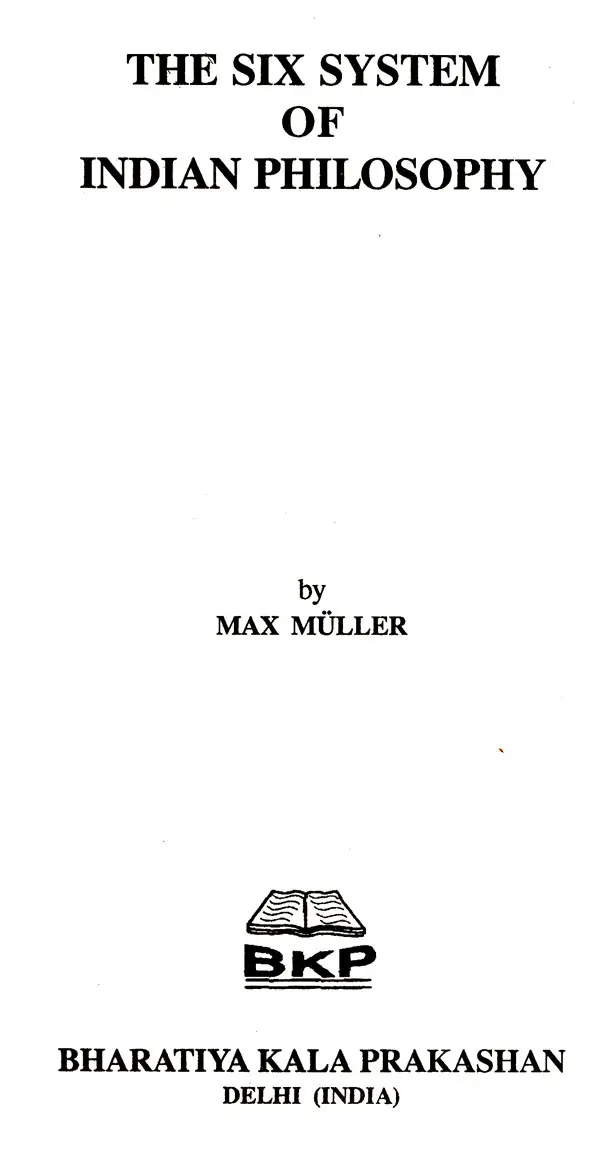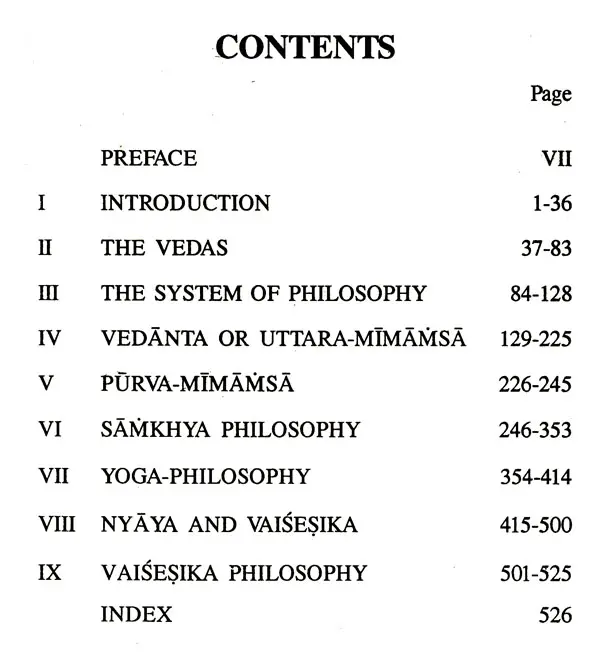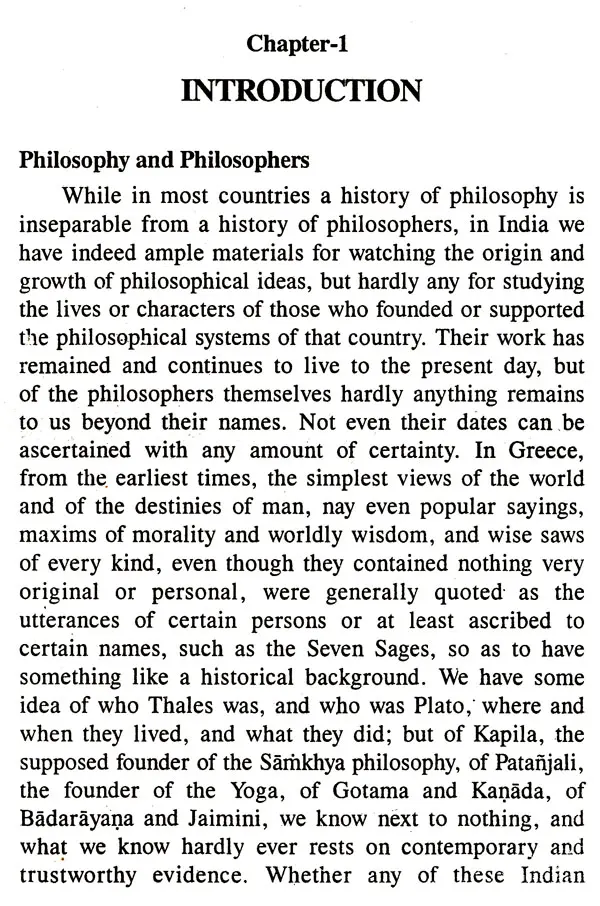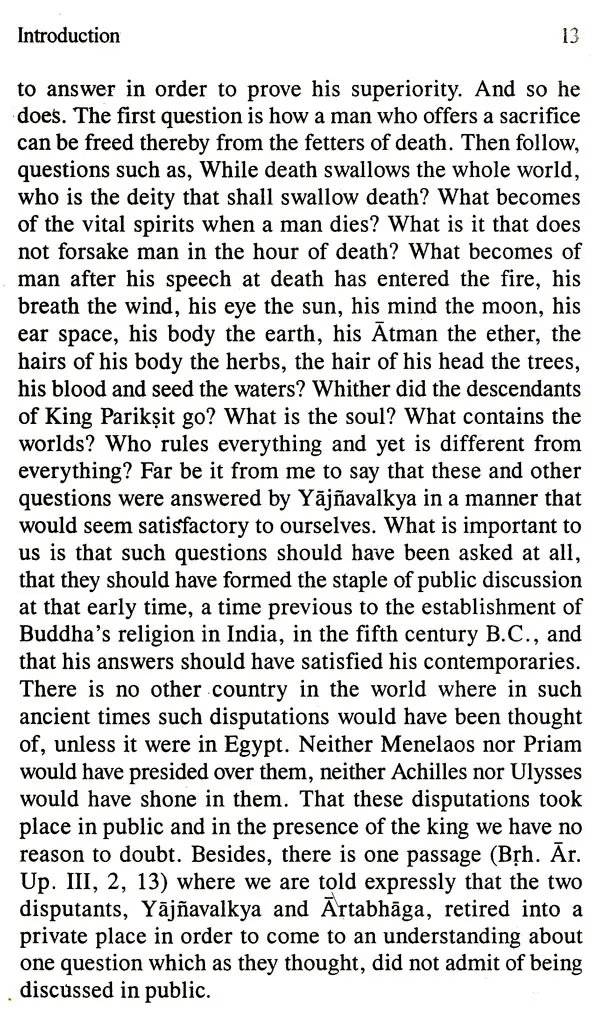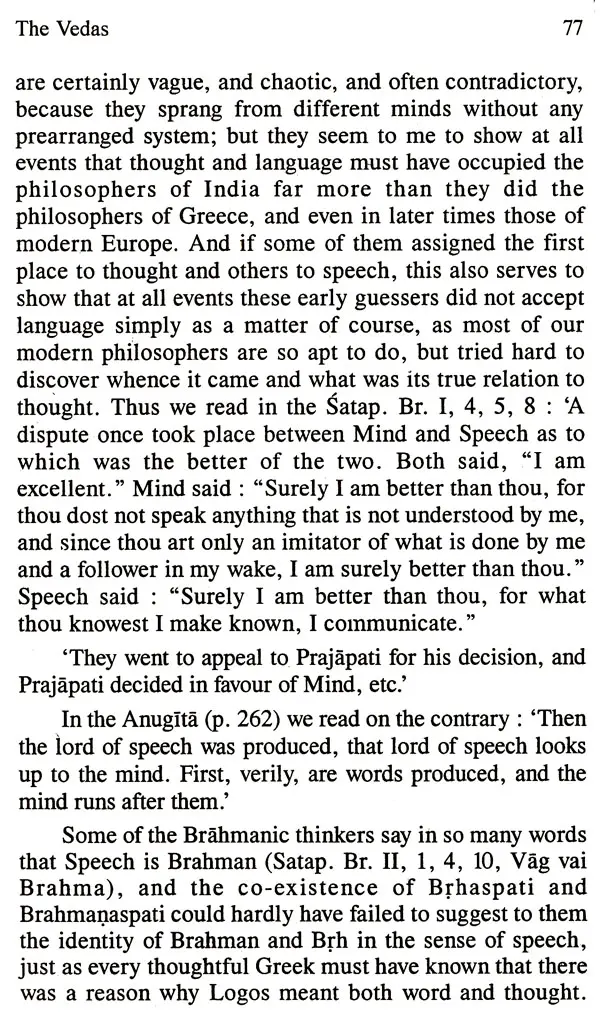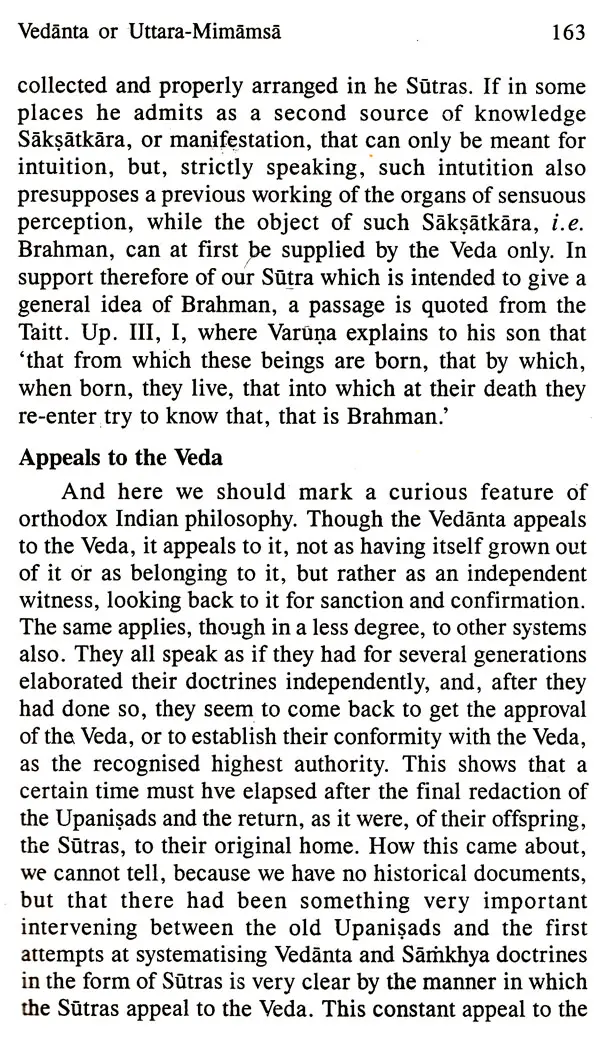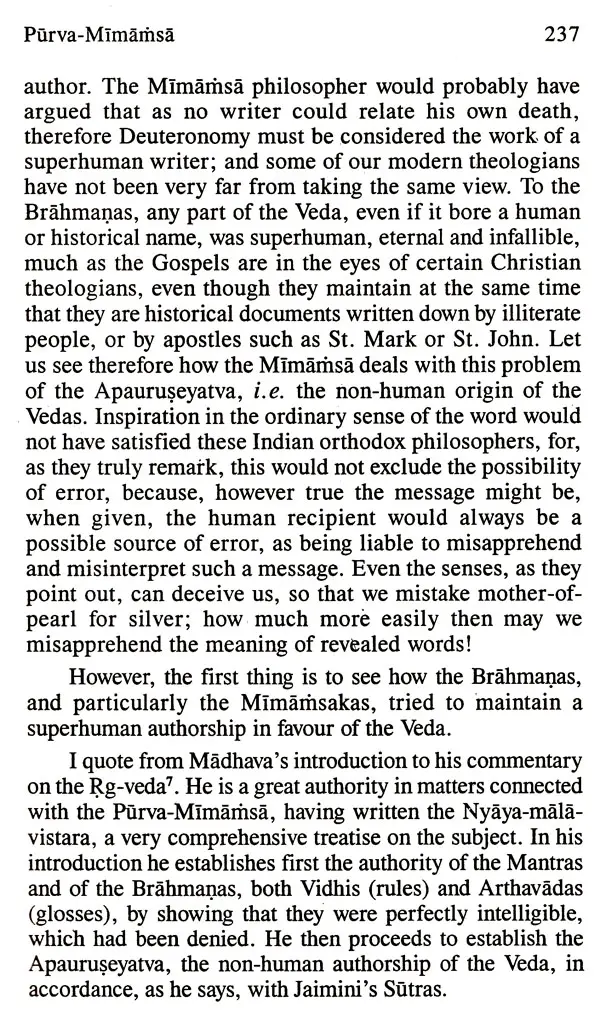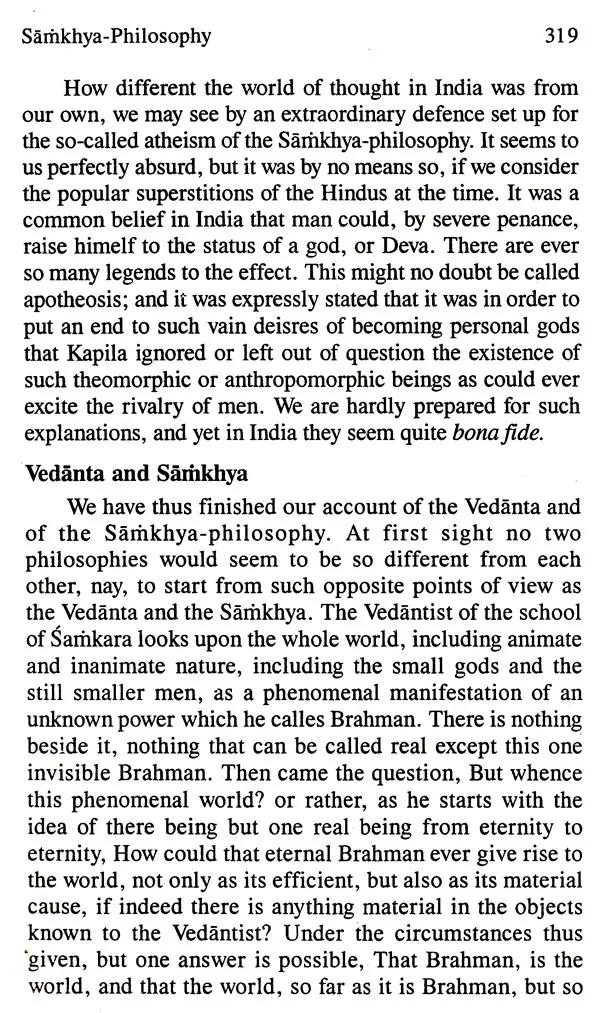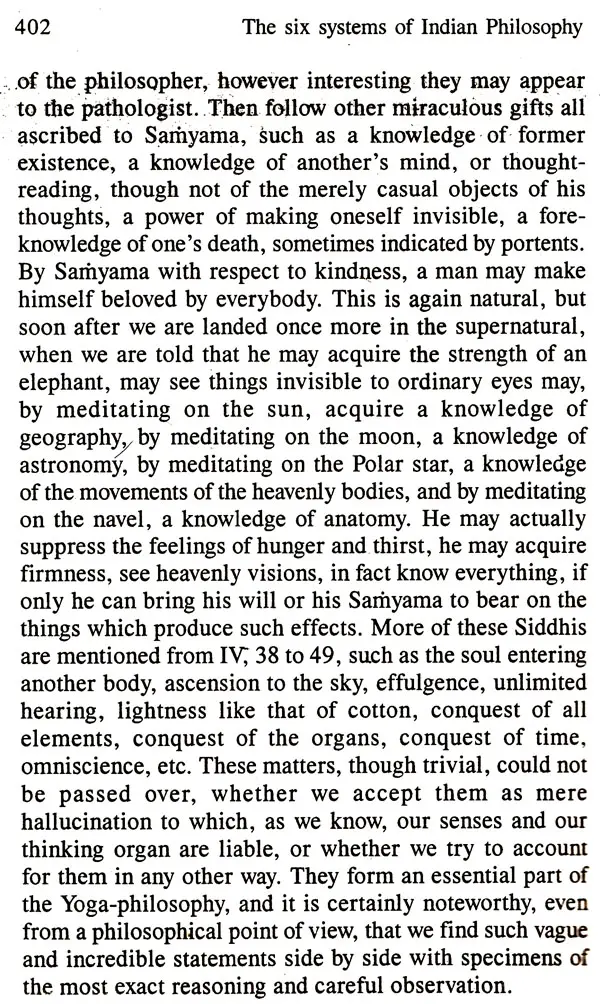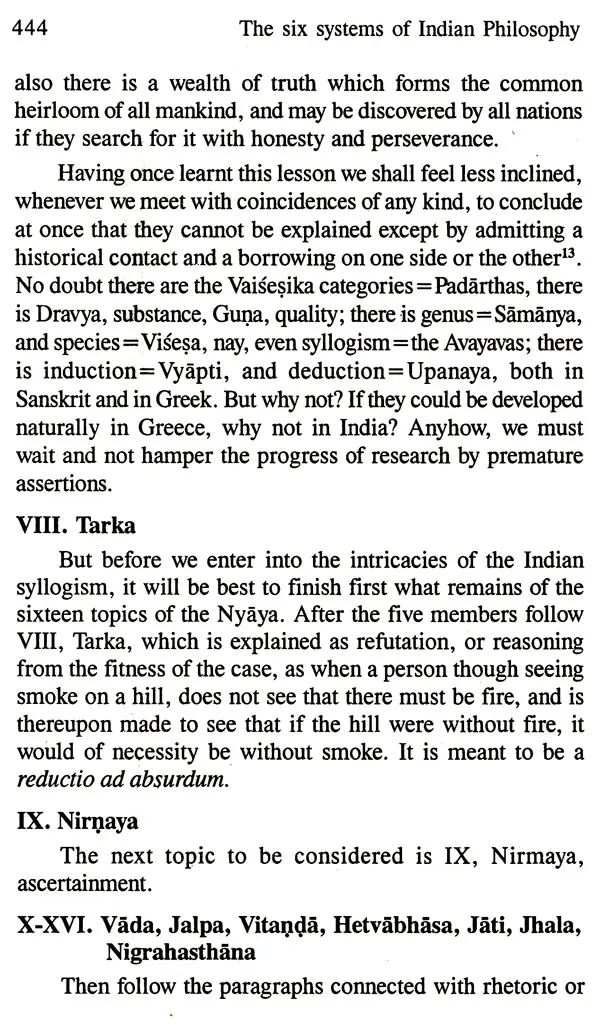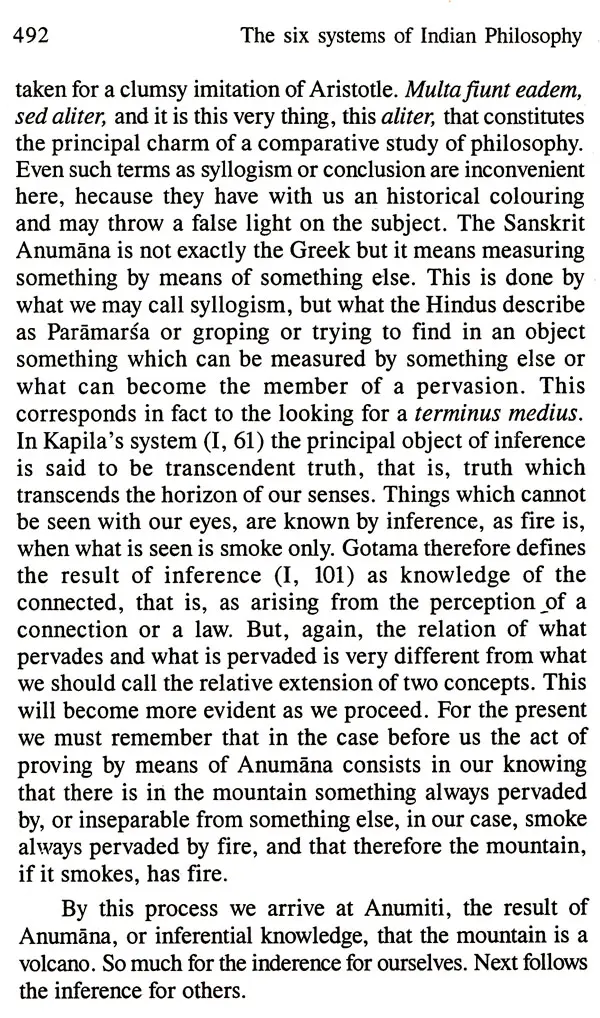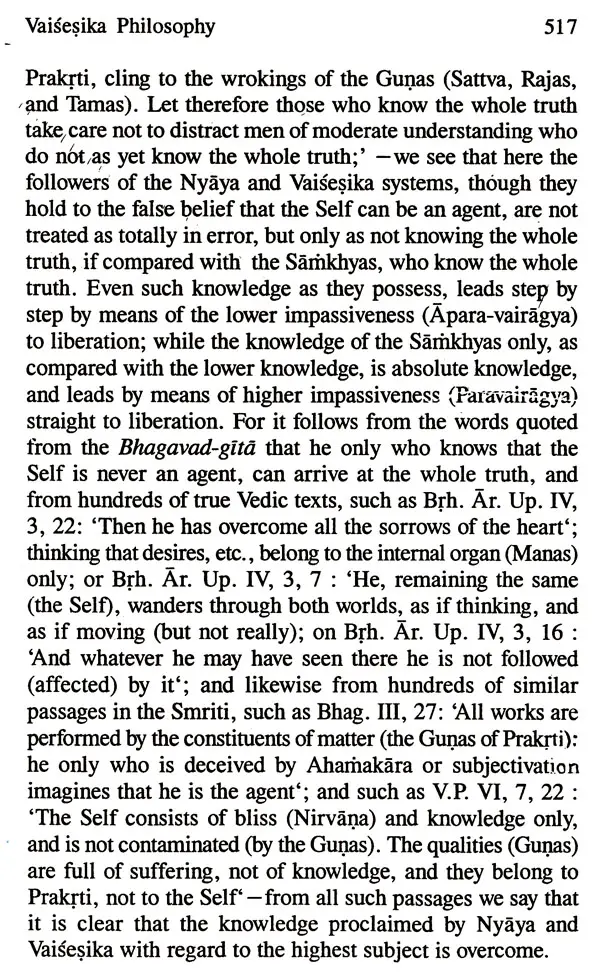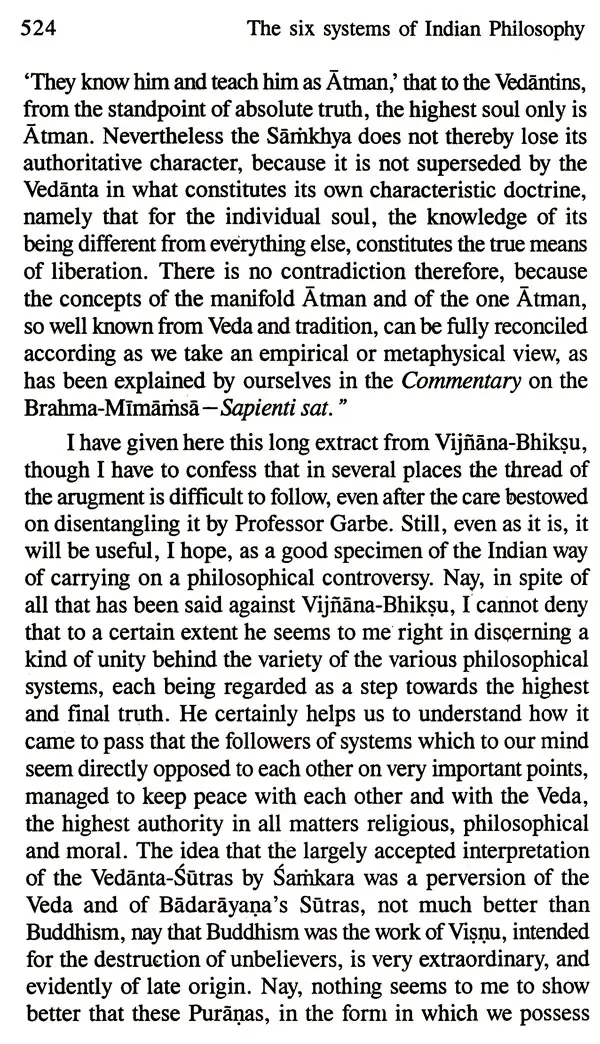
The Six System of Indian Philosophy
Book Specification
| Item Code: | UAN659 |
| Author: | Max Muller |
| Publisher: | Bharatiya Kala Prakashan |
| Language: | English |
| Edition: | 2013 |
| ISBN: | 9788180902864 |
| Pages: | 548 |
| Cover: | HARDCOVER |
| Other Details | 8.80 X 5.80 inch |
| Weight | 790 gm |
Book Description
All the six systems of thought promise to teach the nature of soul, and its relation to Supreme Being. They all undertake to supply the means of knowing the nature of that Supreme Being, and through that knowledge to pave the way to liberation and Supreme happiness. They all share the conviction that there is suffering in the world and that has to be removed.
The present study by Max Muller is a comprehensive analysis of all the six schools of Indian thought. The schools of Indian thought. This book has been thoroughly revised and edited with a Foreword by the present editor.
In India thee is indeed sufficient material to learn about the origin and growth of philosophical ideas, but hardly any for studying the lives or characters of those who founded the philosophical systems of that country. It was the usual course for a philosophical teacher in India to speak rather than to write. The whole of India's an cient literature is divided into two parts, Shrutam, what was heard, and Smritam, what was remembered. Shrutam or Shruti (revelation) came afterwards to mean what has been revealed while Smritam or Smriti (tradition) com prised all that was recognized as possessing human authority only. The literature of the Hindus such as the hymns of the Rigveda is said to be the revelation of a higher power, commonly called Brahman. The philosophy that is now in possession in short aphorisms of Sutras belongs to Smriti or tradition. In Sutras each system of Indian philosphy whether Samkhya of Kapila, Yoga of Patanjali, Nyaya of Gautama, Vaishesika of Kanāda, Vedanta of Badarayana, or Parva-Mimämsä of Jaimini is complete in itself. There is no topic within the sphere of philosophy which does not find a straightforward treatment in these short aphorisms. When these aphorisms present abstracts of the various systems of Indian philosophy, the last stage of Vedic period, as represented in the Upanishads, previous to the Sutras, is, in fact, the most valuable to give an insight into the early growth of Indian philosophic thought where the terms like Brahman, Atman, Dharma, Vrata, Yoga, Mimânsă, etc. are expounded. Max Muller writes: ".....India was fertilized, not only by Ganges and Indus, but by ever so many rivers and rivulets, all pointing to the snowy mountains in the north, we can see the Indian mind also being nourished through ever so many channels, all starting from a vast accumulation of religious and philosophic thought of which we seem to see the last remnants only in our Upanishads....."
**Contents and Sample Pages**
